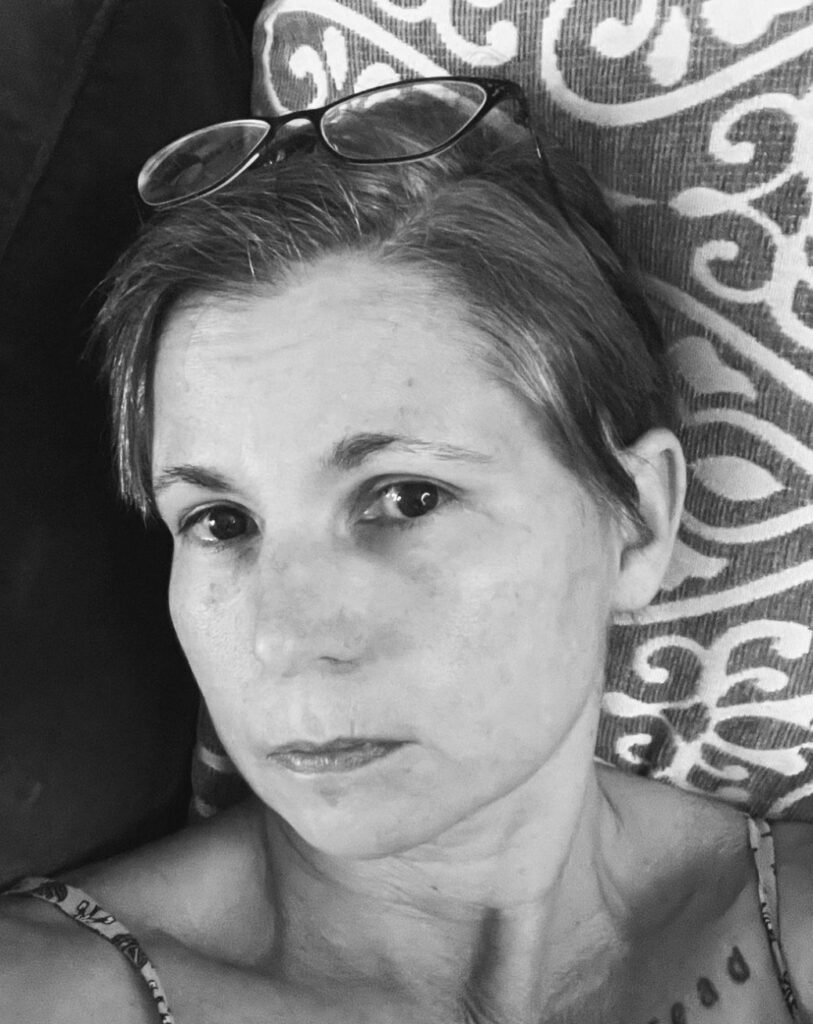Woman, Bird, Star
I closed myself within myself purposely.
The first method by which I tried to contain
miracles was to bind them to me with bandages.
I saw how the rest were living, under canary
yellow skies. But not light, it’s things. A horse
causes shock, a pebble holds for an eon its motion
on inner walls. I’ve tried to move as boulders move
in gardens. Like gangrene. There’s no arguing
with slow children or their guns. The way
I’ve employed the figure “bomb” is pure.
A symbolism, embolism. You’ll want to whisper
my codex like Calder’s wires, stabbing the air. Go
ahead. Akimbo me, my seven limbs. I’ve done the same
spider outside the prison doors for years—note:
hulkish planks do not divide so much as *promote*
division. War’s country is heavier to enter even
than its churches. What do you know of
the fields outside the city? There, fruit is whole and time
cycles largely through triptychs. Spring bleeds into
summer’s wounds. Smuggled from orchards
of the damned, the seeds and runes I’ve swallowed
sprout forth in ancient forms to claim the future.
Brown sun and house top
It is hard for a flat thing to understand a round one.
It would help if any of us understood language—if
asked to by the song of the word, we stood under, looked
up, made awe the condition of the day. Instead, we put
in place of the mystical, fixation. We overstand, circum-
stand.
The shape of a boat is predicated on intelligence
of water. The bottom is crafted dome, is archway. Cathe-
dral. Drawl. It is called Long Island Sound so that we
listen. To live at the end of a long lake is to learn all ends
exist separately, just there, a length beyond the welcoming
numb, its not-unpleasant frozenness.
Always we are tasked
with succumbing. A small life bound by shifting horizon
need not blunt the mind. Modest portals want to open
between art and next. I have devoted myself to re-
formation: sense from abstraction. If we humble
ourselves before the slaughterhouse and accept
yes, all mimesis is reduction, we may yet “get”
it—how fidelity breeds a lessness to soften
the kill. Maybe then we can turn to
things simple and new.

Kirsten Kaschock, a Pew Fellow in the Arts and Summer Literary Seminars grand prize winner, is the author of five poetry books: Unfathoms (Slope Editions), A Beautiful Name for a Girl (Ahsahta Press), The Dottery (University of Pittsburgh Press), Confessional Science-fiction: A Primer (Subito Press), and Explain This Corpse (Lynx House Press). Coffee House Press published her debut speculative novel—Sleight. She has recently transplanted herself to Baltimore where she plans to root and bloom.
